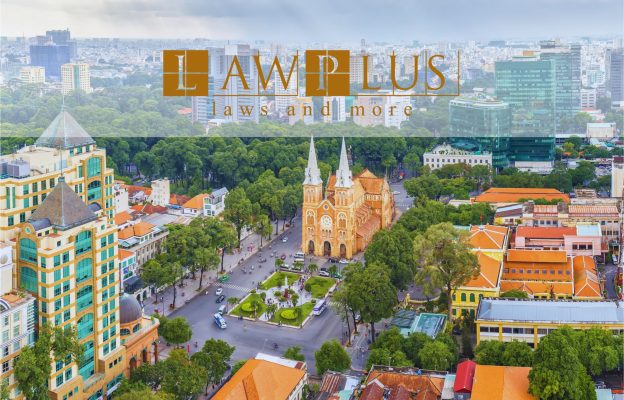Under current legal regulations, foreign-invested companies are allowed to conduct trading activities in Vietnam. However, Vietnam’s legal framework sets firm “legal barriers” to control the trading activities of these companies, ensuring a stable and sustainable economy.
With experience in commercial consultancy, Law Plus will provide valued Clients with the conditions that a foreign-invested company must meet to engage in the trading of goods in Vietnam.
Table of Contents/Mục lục
I. FOREIGN-INVESTED COMPANY
Vietnamese law does not specifically define the term “foreign-invested company” but refers to an “economic organization with foreign investment.” According to Clause 22, Article 3 of the Law on Investment 2020: “An economic organization with foreign investment is an economic organization with a foreign investor as a member or shareholder.”
Furthermore, “economic organization” is defined in Clause 21, Article 3 of the Law on Investment 2020: “An economic organization is an organization established and operating under the Vietnamese law, including enterprises, cooperatives, unions of cooperatives, and other organizations engaged in investment and business activities.” Therefore, a company (or enterprise) is a type of economic organization.
Based on these two definitions, a foreign-invested company is one with a foreign investor as a member or shareholder.
Vietnamese law allows foreign-invested companies to engage in the trading of goods in Vietnam. Accordingly, activities related to the purchase and sale of goods and activities directly related to the purchase and sale of goods are listed in Clause 1, Article 3 of Decree No. 09/2018/ND-CP, as follows:
“1. Sale of goods and other related activities include:
a) Exercising exportation right;
b) Exercising importation right;
c) Exercising distribution right;
d) Providing commercial appraisal service;
dd) Providing logistics services;
e) Good rental, excluding finance lease;
g) Providing commercial promotion services, excluding advertising services;
h) Providing commercial intermediary services;
i) Providing electronic commerce services;
k) Providing bid-holding services.”
Here, we will analyze and explore in-depth the exercise of the rights to export, import and distribute goods, specifically the rights to export, import, wholesale distribution and retail distribution of goods.
Although Vietnam facilitates foreign-invested companies to conduct the aforementioned trading activities, these companies must meet legal conditions and obtain the necessary Certificates and Licenses to engage in the business activities related to the export, import, wholesale distribution and retail distribution of goods.
II. CONDITIONS FOR TRADING GOODS IN VIETNAM
Article 3 of Decree No. 09/2018/ND-CP defines the rights to export, import, and distribute as follows:
“– Exportation right means the right to purchase goods in Vietnam for export, including the right to have one’s name written in the export declaration in order to carry out and take responsibility for export-related procedures…
– Importation right means the right to import goods from foreign countries into Vietnam for sale to traders that have the right to distribute those goods in Vietnam, including the right to have one’s name written in the import declaration in order to carry out and take responsibility for import-related procedures…
– Wholesaling involves selling goods to wholesalers, retailers, other organizations and traders; excluding retailing.
– Retailing involving selling goods to individuals, households, other organizations for consumption purpose.”
Thus, to engage in the trading of goods in Vietnam, a foreign-invested company must meet the following conditions:
(i) Register the objective of exercising export, import, wholesale distribution and retail distribution rights according to investment law
In the case of newly established foreign-invested companies, when registering investment projects with the Foreign Economic Office of the Department of Planning and Investment, foreign investors must register to pursue the following objectives: the right to export, the right to import and wholesale distribution (CPC 622), and retail distribution (CPC 632) for the goods intended to be traded.
According to the WTO Commitments on Services, the rights.to wholesale distribution and retail distribution are two services.committed by the WTO member countries. Foreign investors from WTO member countries.are entitled to pursue the objectives.of export rights, import rights, wholesale distribution (CPC 622), and retail distribution (CPC 632) for.goods not listed as prohibited in Vietnam.
(ii) Register appropriate business sectors after the investment authority approved investment objectives
Enterprises are only allowed to operate within the scope of the.registered business sectors. Therefore, selecting the appropriate.business sectors when establishing a company is important, as it affects the company’s future.operations. As a principle, enterprises are free to operate in any sectors not prohibited by law. For conditional business sectors, companies must meet additional conditions for reasons of national defense, security, social order and safety.
Business sector registration is conducted through the enterprise registration procedure at the Business Registration Office – Department of Planning and Investment. The application must clearly state the business sectors the company wishes to register.
- Wholesale business has industry codes at level 2 of 45, 46, including: 4511 – Wholesale of motor vehicles and other motorized vehicles, 4632 – Wholesale of food, 4633 – Wholesale of beverages, 4641 – Wholesale of textiles, ready-made garments, footwear, etc.
- Retail business has industry codes at level 2 of 45, 47, including: 4512 – Retail sale of passenger cars (with 9 seats or fewer), 4721 – Retail sale of victuals in specialized stores, 4722 – Retail sale of food in specialized stores, etc.
(iii) Minimum capital requirements
Current law does not specify a minimum capital requirement when establishing a company. However, certain specific industries have statutory capital requirements.
For example: For wholesale alcohol trading, companies must have a minimum financial capacity of 300 million VND to ensure the proper functioning of the entire wholesale system of the company (Clause 9, Article 11, Circular No. 60/2014/TT-BCT).
(iv) Apply for licenses to exercise the right to retail goods
To retail goods, a foreign-invested company.must apply for a business License and a retail outlet.establishment License (if the company has a retail outlet). Applying for a license to exercise the right.to retail is a mandatory condition for foreign-invested companies.wishing to engage in the retail sale of goods in Vietnam. For more information on the procedure.for obtaining a business License and a retail outlet.establishment License, our valued Clients can refer to the.article IS OBTAINING A RETAIL LICENSE MANDATORY FOR FOREIGN TRADER? on the Law Plus website.
In conclusion, a thorough understanding of commercial law helps foreign-invested companies operate legally and minimize potential risks. This enables the company’s business to sail smoothly and take a proactive position in the market.
For any inquiries, please contact Law Plus via email at info@lawplus.vn or website, hotline 0965 052 039 / 0966 008 030 (WhatsApp, Viber, Zalo).











